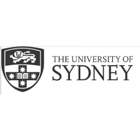- News and articles
- Find usIDP AustraliaIDP BahrainIDP BangladeshIDP CambodiaIDP CanadaIDP ChinaIDP EgyptIDP GhanaIDP Hong KongIDP IndiaIDP IndonesiaIDP IranIDP JordanIDP KenyaIDP KoreaIDP KuwaitIDP LebanonIDP MalaysiaIDP MauritiusIDP Middle EastIDP NepalIDP New ZealandIDP NigeriaIDP OmanIDP PakistanIDP PhilippinesIDP Saudi ArabiaIDP SingaporeIDP Sri LankaIDP Taiwan, ChinaIDP ThailandIDP TurkeyIDP UAEIDP VietnamIDP Corporate
- Social
- English
- Where we operate
- Courses
- Scholarships
- IELTS
- About IDP
- Student Essentials
- News and articles
- Find us
- Find us
- Find nearest IDP offices
- IDP Australia
- IDP Bahrain
- IDP Bangladesh
- IDP Cambodia
- IDP Canada
- IDP China
- IDP Egypt
- IDP Ghana
- IDP Hong Kong
- IDP India
- IDP Indonesia
- IDP Iran
- IDP Jordan
- IDP Kenya
- IDP Korea
- IDP Kuwait
- IDP Lebanon
- IDP Malaysia
- IDP Mauritius
- IDP Middle East
- IDP Nepal
- IDP New Zealand
- IDP Nigeria
- IDP Oman
- IDP Pakistan
- IDP Philippines
- IDP Saudi Arabia
- IDP Singapore
- IDP Sri Lanka
- IDP Taiwan, China
- IDP Thailand
- IDP Turkey
- IDP UAE
- IDP Vietnam
- IDP Corporate
- Social
- Language Switcher
- IDP Education /
- Colleges and Universities /
- Australia /
- The University of Sydney /
- Bachelor of Science and Doc...


Location
Australia
Qualification
Dual Degree
Fees
AUD56000
(2025)
Duration
7 Year(s)
Next intake
19 February 2026
Entry Score
7.0
IELTSCourse info
The immune system is an integrated network of cells and specialised organs that can respond to external and internal pathogens that threaten normal physiological status. It can be mobilised in a highly regulated manner to protect humans from infections and cancer while simultaneously being the underlying mechanism of major acute and chronic pathologies. The Immunology and Pathology major examines how it is that our immune system can be both the cause and the cure of disease in humans and animals. This is important, as an understanding of immunological and pathological mechanisms allows us to think about how our immune system can be manipulated to prevent and treat disease. This major draws together studies in immunology, pathology, anatomy, histopathology (advanced imaging technologies), microbiology, biology, biochemistry, and physiology. Studies in immunology and pathology are important because they are leading to advances in clinical medicine and clinical science, and the development of new treatments for disease including drugs, vaccines and immuno-therapies. In addition, immunopathological techniques are widely used in biology, histopathology, endocrinology, microbiology, cell and molecular biology, neurobiology and genetics.
Graduates with a major in this area may proceed to honours and postgraduate study or they may find employment as immunologists or pathologists in hospitals, in public and industry research laboratories specialising in immunology, cell biology and biotechnology, and in other biomedical sciences such as pathology, biochemistry, pharmacology, microbiology and molecular biology.
- Scholarships View all scholarships
- Internships
Course fees are indicative and should be used as a guide. to get an accurate price.
Duration: 7 Year(s)
Fees: AUD56000
| Intake | Location |
|---|---|
| Semester 1 (February), 2026 | THE UNIVERSITY OF SYDNEY |
| Semester 1 (February), 2025 | THE UNIVERSITY OF SYDNEY |
Entry requirements for The University of Sydney
IELTS - A minimum result of 7.0 overall and a minimum result of 7.0 in each band
TOEFL IBT - A minimum result of 96 overall including a minimum result of 23 in Reading, Listening and Speaking and 25 in Writing
A secondary education qualification such as the NSW Higher School Certificate (including national and international equivalents). An ATAR of 99.95 or equivalent is required
Application Deadline
The application deadline isn't available Speak to an IDP counsellor for more detailed information
Further information
If you aren't eligible for the above entry requirements, you might ant to explore pathway options at The University of Sydney. If you want to find out more, speak to our counsellors.
THE World Ranking
61st / 1250
THE World RankingWhat our students think
We’ve haven’t received any reviews for this institution yet.
Recommended for you
- Bachelor Degree
- Dubai , Australia
- Next intake:09/2025
- Entry Score: IELTS 5.0
- AED60429 (2025)
- Bachelor Degree
- Dubai , Australia
- Next intake:09/2025
- Entry Score: IELTS 5.0
- AED60429 (2025)
- THE World Ranking:1201
- Bachelor Degree
- Sydney , Australia
- Next intake:07/2025
- Entry Score: IELTS 6.0
- AUD30015 (2025)
- THE World Ranking:401
- Dual Degree
- Murdoch , Australia
- Next intake:07/2025
- Entry Score: IELTS 6.0
- AUD37680 (2025)
- Bachelor Degree
- Dubai , Australia
- Next intake:08/2025
- Entry Score: IELTS 6.0
- AED87300 (2025)
- THE World Ranking:351
- Bachelor Degree
- JOONDALUP , Australia
- Next intake:07/2025
- Entry Score: IELTS 6.0
- AUD40050 (2025)
- THE World Ranking:301
- Dual Degree
- Adelaide , Australia
- Next intake:03/2026
- Entry Score: IELTS 6.0
- AUD42400 (2025)
- THE World Ranking:401
- Dual Degree
- Murdoch , Australia
- Next intake:07/2025
- Entry Score: IELTS 6
- AUD39240 (2025)
Your action plan
Step 1
Shortlist your courses
Choose the best three courses you’re most likely to pursue.
Step 2
Check your eligibility
Get an instant in-principle offer for courses with the IDP FastLane tag.
Step 3
Apply through IDP Live
Fill out the form once and use it to apply to multiple courses.
How does IDP FastLane work?
With the FastLane 'Offer in Principle', you'll know in minutes if you'll be accepted!
Select an institution and course
Create your academic profile
Submit your application for an 'Offer in Principle'
Your chosen institution(s) will send you a decision in minutes!
Get ready to apply with an expert counsellor




